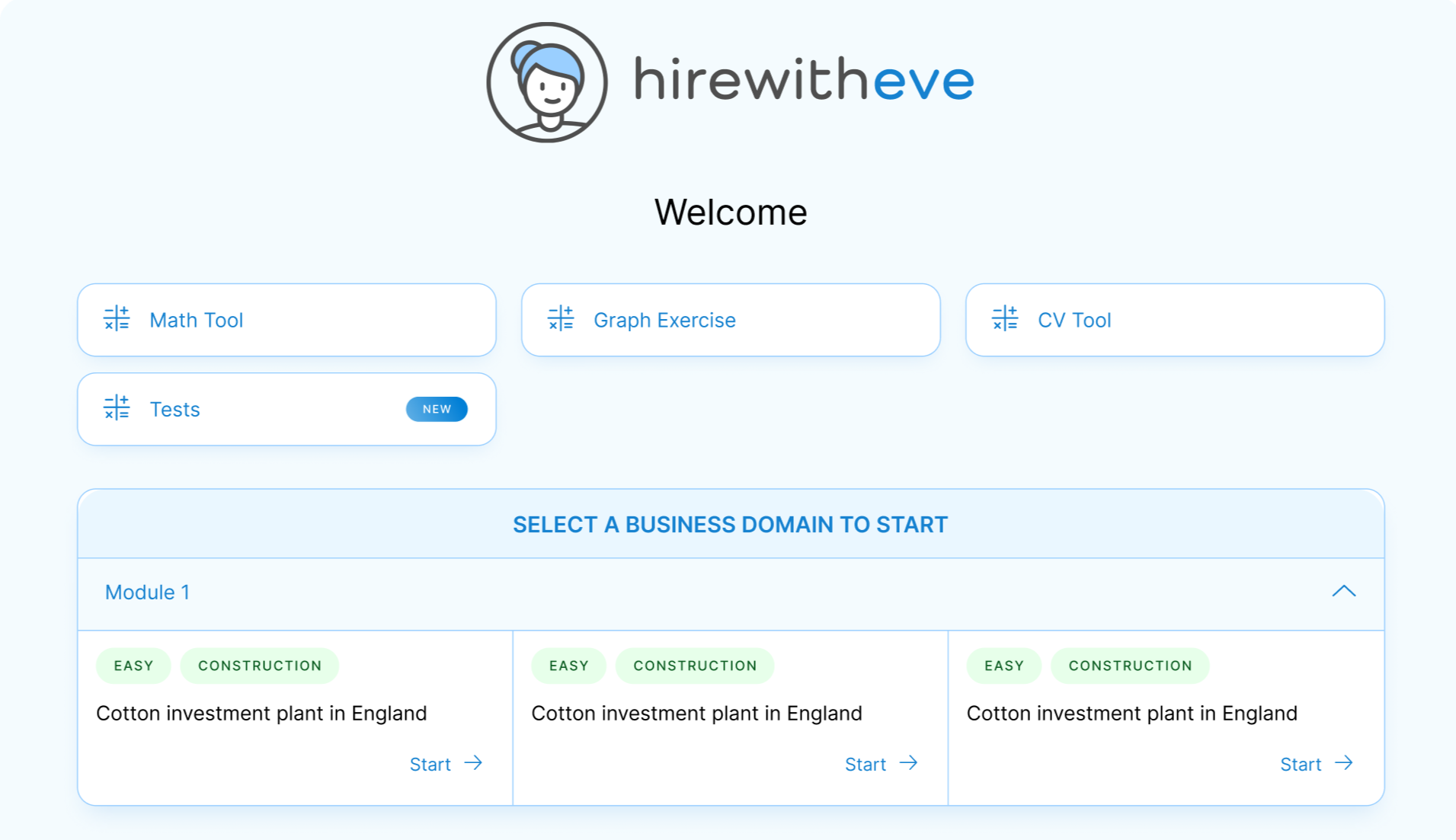Leadership Development: The Key to Building Stronger Teams

Leadership development is more than just a buzzword; it’s an essential strategy for building a resilient, engaged workforce. As talent acquisition specialists and HR managers, understanding the importance of leadership development can significantly improve your organization’s ability to attract, retain, and grow top-tier talent.
With the growing competition for skilled professionals, companies that invest in leadership development stand out as industry leaders. But what exactly does leadership development entail, and how can it transform your hiring and retention efforts?
In this blog, we will explore the importance of leadership development, best practices for implementation, and how it plays a pivotal role in talent acquisition. We’ll also touch upon survey findings that highlight the benefits of leadership development in the workplace. Finally, we will connect these insights to the powerful features of HirewithEve, a platform designed to help HR professionals optimize leadership development programs.
Table of contents
Understanding Leadership Development
Leadership development refers to the process of enhancing the skills, abilities, and confidence of current and future leaders within an organization. This often involves training, mentoring, and other growth opportunities that prepare individuals to take on leadership roles.
In today’s business environment, leadership development is not just for C-suite executives. It is increasingly becoming a vital part of employee growth at all levels of an organization. Effective leadership development ensures that employees are ready to lead teams, manage projects, and make decisions that align with company goals.
Leadership development programs focus on cultivating soft skills like communication, emotional intelligence, conflict resolution, and strategic thinking. These skills are essential for leaders who must navigate complex organizational challenges and inspire their teams to perform at their best. By investing in leadership development, organizations can create a pipeline of leaders ready to step into key roles when the need arises.
The Importance of Leadership Development in Talent Acquisition
For talent acquisition specialists, leadership development plays a crucial role in attracting and retaining top talent. Candidates are not only looking for competitive salaries and benefits; they are also seeking opportunities for personal and professional growth. Leadership development programs demonstrate that an organization is committed to investing in its employees, which can be a significant selling point during recruitment.
When potential candidates see that a company prioritizes leadership development, they are more likely to view it as a place where they can build a long-term career. This is especially important for millennial and Gen Z workers, who tend to value career growth and development opportunities highly.
Moreover, leadership development helps to create a strong organizational culture where employees feel valued and supported. A workplace with a well-structured leadership development program is likely to experience higher employee engagement, lower turnover, and better overall performance. Talent acquisition specialists can leverage these advantages when sourcing and hiring top-tier candidates.
Best Practices for Implementing Leadership Development Programs
Implementing an effective leadership development program requires a strategic approach.
Here are some best practices for HR managers and talent acquisition specialists to consider:

Identify Leadership Potential Early: Leadership development should start early in an employee’s career. Identify individuals with leadership potential during the hiring process or through performance evaluations. Offering leadership development programs to high-potential employees can help them grow into leadership roles over time.
Tailor Programs to Individual Needs: One size does not fit all when it comes to leadership development. Create programs that are flexible and tailored to the specific needs of each employee. Some employees may benefit from formal training, while others might thrive under mentorship or job rotations.
Encourage Continuous Learning: Leadership development is not a one-time event. Encourage employees to pursue continuous learning opportunities, whether through workshops, online courses, or leadership conferences. Continuous learning helps leaders stay adaptable and prepared for new challenges.
Measure Success: To ensure your leadership development program is effective, measure its impact. This can be done through employee feedback, performance reviews, or tracking the career progression of participants. Use these insights to continuously improve the program.
Promote Diversity in Leadership: Effective leadership development programs should also focus on promoting diversity. Ensure that employees from different backgrounds and experiences have equal access to leadership opportunities. This creates a more inclusive environment and brings diverse perspectives to decision-making processes.
Survey Insights on Leadership Development
A recent survey by Deloitte revealed that 86% of organizations cite leadership development as a critical issue. However, only 13% believe they do an excellent job of developing leaders at all levels. The survey highlighted several key findings:
Impact on Engagement: Companies with robust leadership development programs see 50% higher employee engagement rates compared to those without.
Retention Benefits: Employees who participate in leadership development programs are 60% more likely to stay with the company for over five years.
Enhanced Performance: Organizations with effective leadership development strategies experience 37% greater organizational performance.
These findings reinforce the importance of leadership development in creating a strong, engaged, and productive workforce.
Conclusion
In the modern workplace, leadership development is no longer optional — it’s a necessity. Companies that invest in leadership development are better positioned to attract top talent, reduce turnover, and build a resilient, high-performing workforce. For talent acquisition specialists and HR managers, incorporating leadership development into the employee value proposition can significantly enhance recruitment and retention efforts.
At HirewithEve, we understand the critical role that leadership development plays in the success of your organization. Our platform is designed to support HR professionals in building and managing leadership development programs with ease.
Here’s how HirewithEve can help:
Skills-Based Assessments: Identify leadership potential through tailored skills-based assessments that go beyond traditional qualifications.
Data-Driven Insights: Track the progress of your leadership development initiatives and make informed decisions using real-time analytics and reporting features.
By leveraging these features, you can ensure that your leadership development programs are effective, scalable, and aligned with your organizational goals.
Leadership development is the key to unlocking the full potential of your workforce. With the right strategies and tools in place, you can foster a culture of growth, innovation, and leadership that drives success now and in the future.
Target Your Talent
Unlock tailored solutions for your recruitment and hiring needs with Eve Platform's extensive case study library.
Subscribe now to enhance your HR expertise and excel in your role.
Free Resources

Transforming Hiring: 7 Key Recruiting Metrics
Enhancing recruitment processes with data-driven insights for better hiring outcomes.

Reducing Hiring Bias with Hirewitheve.
Utilizing Hirewitheve to combat bias and streamline recruitment processes effectively.

Hiring Detail-Oriented Candidates
HirewithEve enhances hiring by accurately assessing candidate's attention to detail-oriented.








